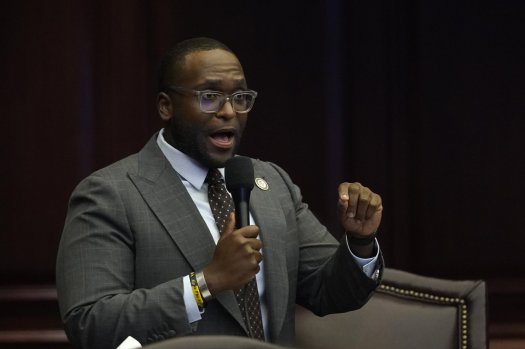There is a new law in effect. Although Tuesday is hailed as a means of shielding elected officials and their families from harassment, government watchdogs are concerned since it also keeps people from knowing whether their representatives actually reside in their districts as mandated.
In April, a bill (SB 268) that would exempt the entire home addresses and phone numbers of a variety of public officials, including lawmakers, was passed by the Florida Legislature with a resounding majority. On Friday, Governor Ron DeSantis signed the law.
In light of the nation’s growing concern over political violence, the measure, which is sponsored by state Senator Shevrin Jones, D-Miami Gardens, attempts to shield public officials and their families from threats, harassment, and intimidation.
Jones, who claimed to have previously received a death threat, told the Orlando Sentinel on Monday that while he was happy to see the bill become law, he regretted that it was required in the first place.
In this day and age, is it safe to hold elected office? “I said.” It’s absurd and regrettable that we have reached this stage and that we believe this is required at this particular moment.
Jones said the attempted murder of a state lawmaker and his wife earlier in June and the horrifying murder of a Minnesota senator and her spouse demonstrate the urgent need for the legislation. He wants the Legislature to consider ways to safeguard politicians and their staff in Tallahassee and their districts in the wake of the tragedy next year.
In April, however, Bobby Block, executive director of the Florida First Amendment Foundation, stated that he was certain the measure would undermine government accountability but questioned whether it would stop officials from being singled out.
According to him, this rule will make it impossible for voters to verify whether the candidate they are supporting or reelecting still resides in the district they claim to represent.
According to Block, the bill was only the most recent in the Legislature’s ten-year attempt to create exceptions to Florida’s public information rules.
He went on to say that the Sunshine State is becoming more and more like the Shady State.
Last year, his opponent in the Democratic Party primary filed an ethics complaint against State Representative Bruce Antone, D-Orlando, alleging that he failed to reside in his district despite being required by law to do so by Election Day.
According to a 2024 report by Fresh Take Florida, a news service of the University of Florida journalism program, he did not reside in his district, which includes parts of Orlando and west Orange County, based on addresses on several official documents, such as voter registration forms, property tax records, and campaign filings.
Some of the data utilized in that inquiry would no longer be available due to the measure that Antone supported.
Antone responded that he had no specific reason for supporting the bill when asked if that news had influenced his vote.
Jones stated that the statute was purposefully left open for openness, allowing someone to view an official’s city and zip code but not their street address, which is sufficient to verify whether a politician resides in their district. However, as cities and ZIP codes might stretch over multiple districts, the information might not be sufficient to verify the lawmakers’ residency.
Only two members of the House voted against the bill, including state representative Anna Eskamani, a Democrat from Orlando. She stated that while she understands other members’ worries about the harassment she has experienced at home, she does not want these issues to be resolved by restricting public access to information.
At the end of the day, she continued, many people are in danger, experience harassment similar to ours, and lack the same level of safety.
Members of the Florida Legislature and Congress, the governor, lieutenant governor, and cabinet, as well as mayors, county property appraisers, election supervisors, school superintendents, school board members, and municipal and county commissioners, are all subject to the legislation.
Any official who wishes to have their information exempted from the statute must do so by contacting each agency that keeps the relevant records. When they leave office, they will no longer be eligible for the exemption.












